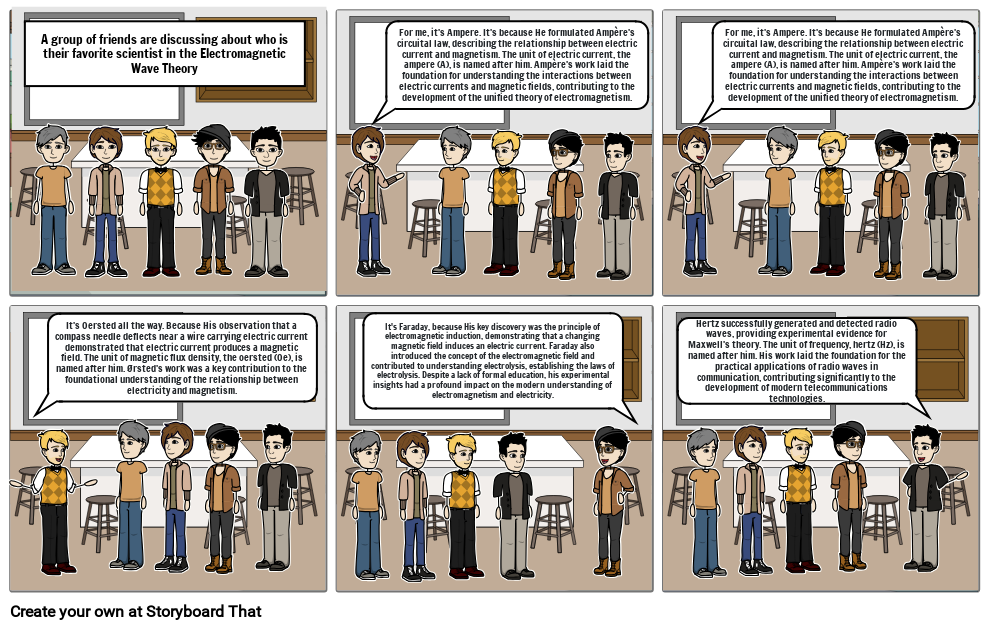scientists

نص القصة المصورة
- الانزلاق: 1
- A group of friends are discussing about who is their favorite scientist in the Electromagnetic Wave Theory
- الانزلاق: 2
- For me, it's Ampere. It's because He formulated Ampère's circuital law, describing the relationship between electric current and magnetism. The unit of electric current, the ampere (A), is named after him. Ampère's work laid the foundation for understanding the interactions between electric currents and magnetic fields, contributing to the development of the unified theory of electromagnetism.
- الانزلاق: 3
- For me, it's Ampere. It's because He formulated Ampère's circuital law, describing the relationship between electric current and magnetism. The unit of electric current, the ampere (A), is named after him. Ampère's work laid the foundation for understanding the interactions between electric currents and magnetic fields, contributing to the development of the unified theory of electromagnetism.
- الانزلاق: 4
- It's Oersted all the way. Because His observation that a compass needle deflects near a wire carrying electric current demonstrated that electric current produces a magnetic field. The unit of magnetic flux density, the oersted (Oe), is named after him. Ørsted's work was a key contribution to the foundational understanding of the relationship between electricity and magnetism.
- الانزلاق: 5
- It's Faraday, because His key discovery was the principle of electromagnetic induction, demonstrating that a changing magnetic field induces an electric current. Faraday also introduced the concept of the electromagnetic field and contributed to understanding electrolysis, establishing the laws of electrolysis. Despite a lack of formal education, his experimental insights had a profound impact on the modern understanding of electromagnetism and electricity.
- الانزلاق: 6
- Hertz successfully generated and detected radio waves, providing experimental evidence for Maxwell's theory. The unit of frequency, hertz (Hz), is named after him. His work laid the foundation for the practical applications of radio waves in communication, contributing significantly to the development of modern telecommunications technologies.
تم إنشاء أكثر من 30 مليون من القصص المصورة

